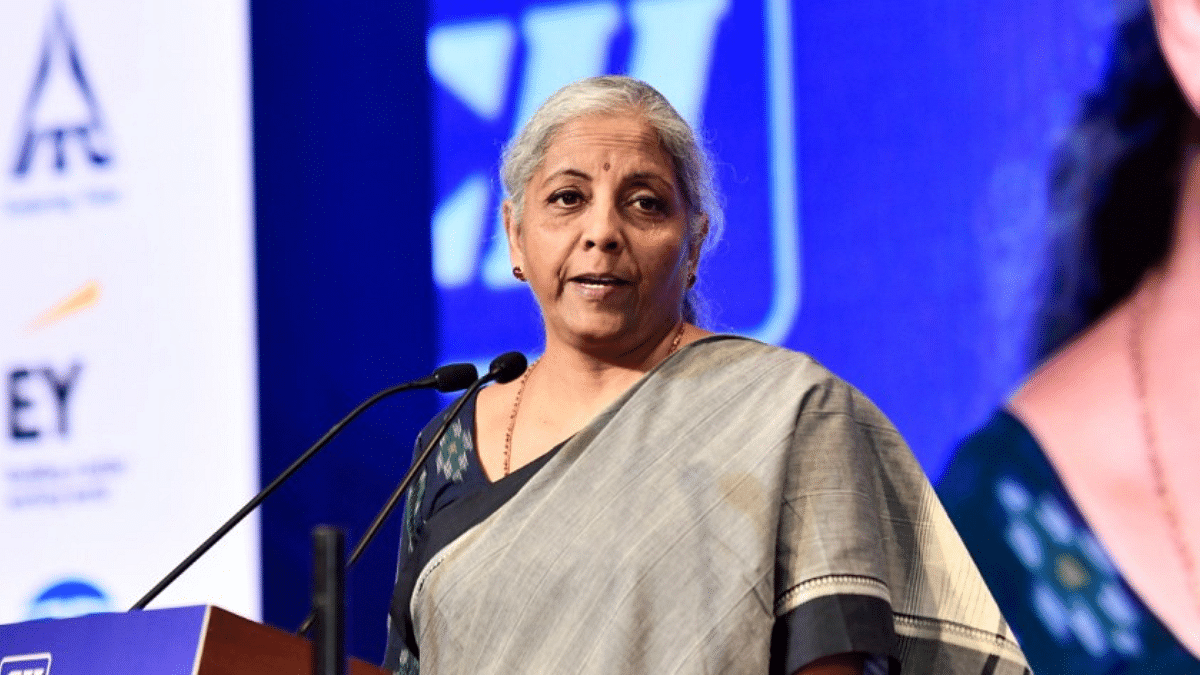New Delhi: Finance Minister Nirmala Sitharaman Friday reiterated the government’s commitment to ramp up not only manufacturing capacity in India but also the country’s share of global manufacturing. She also emphasised the role of the private sector as a “partner” to develop India.
Sitharaman’s comments came at a time when there’s an ongoing debate in India’s policy space on whether the country should focus on increasing manufacturing or further developing its services sector.
Further, her remark on the private sector came soon after comments by Prime Minister Narendra Modi alleging that two of India’s biggest corporate houses were sending black money to the Congress, leading to some worries about a possible change in the government’s perceived pro-business stance.
“Much against the advice given by some economists that India should no longer be looking at manufacturing or ramping up manufacturing, I would like to highlight the fact that manufacturing must increase,” Sitharaman said, speaking at the Confederation of Indian Industry’s Annual Business Summit. “India must also increase, with the help of policies, its share in manufacturing in global value chains,” she said.
“So, we need to have greater sophistication in our product manufacturing,” she added. “We also need to see how best this can be given policy support.”
Over the last few months, former Reserve Bank of India Raghuram Rajan has been advising that India should focus on the services sector, which, he said, is India’s strength, rather than on manufacturing.
To highlight India’s attractiveness as an investment destination, the Finance Minister highlighted a May 2024 report by Capgemini Research Institute, which, she said, showed India figures at the top of the list of investment destinations for senior executives in Europe & US looking to reduce their dependence on China.
“Sixty-five percent of nearly 760 executives were planning to increase investments significantly in India,” Sitharaman said, citing the report.
She further said that going ahead, expanding manufacturing will also help India be self-reliant.
“Currently, the telecom sector’s Production-Linked Incentive (PLI) scheme has actually helped India to be more aatmanirbhar (self-
She added that the PLI scheme is also boosting the mobile and electronics sectors, adding that, from a situation of 78 percent import dependence in 2014, today 99 percent of all mobiles sold in India are made in India.
“I would like to present that the fundamental basis for this consistent and steady growth, and high growth, is the policy stability, absence of flip-flops, corruption-free decision-making, and making sure that the facilitation both in legislative and legal frameworks are all simultaneously going on, having heard from industry that changes are required in our compliance regime,” Sitharaman said.
She further said that the Modi government looks at the private sector as a “partner in developing India”.
“Even as we set 2047 as the year by which India should become a developed country, we see a very important role for the private sector and we would like to partner with them in the development, with the government acting as a facilitator and enabler,” she said.
Last week, Modi seemingly pointed out that Ambani and Adani were transferring black money to the Congress party.
“Shehzada should declare how much money he has picked up from Ambani and Adani in this election,” Modi had said during an election rally in Telangana. “How many sacks of black money has he received? Has money reached Congress in tempos? What deal has been struck?”
(Edited by Madhurita Goswami)
Also read: India’s economic sway in Africa is far behind China’s but ‘trump cards’ yet to be played

